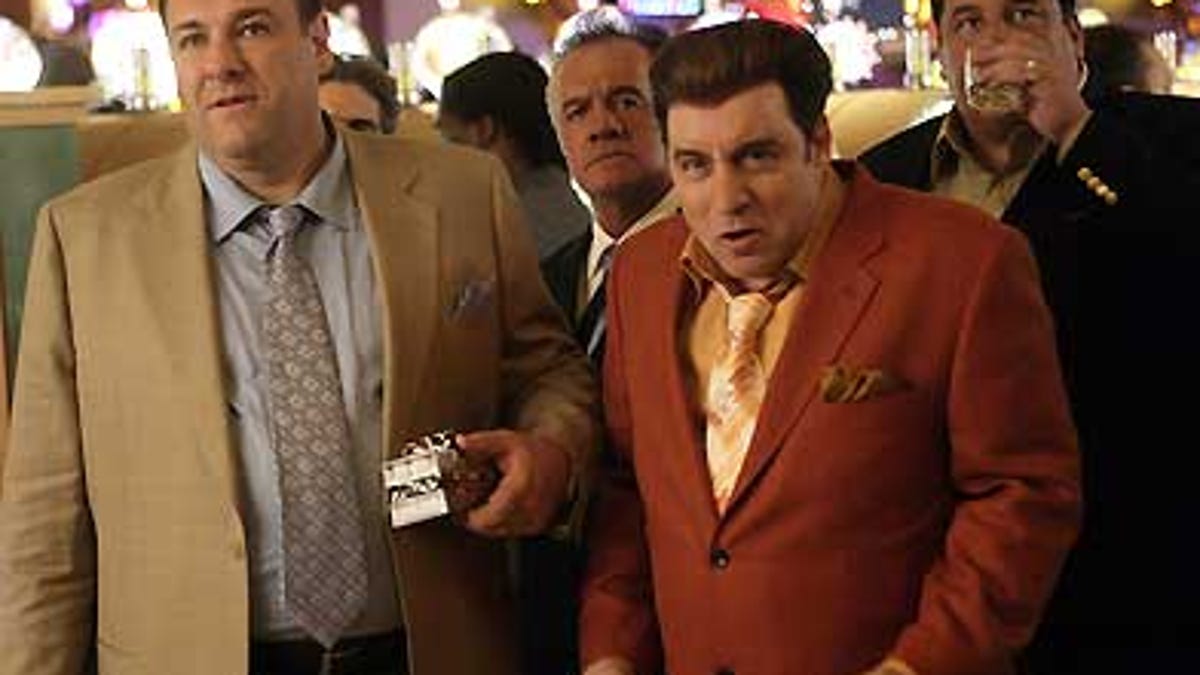Netflix: It wants to be HBO, but better
Netflix has begun distributing its own shows and is starting with one that has a Soprano-esque feel. It's game on in Netflix's budding rivalry with HBO.

Steven Van Zandt was born to run and Netflix is hoping the former "Sopranos" actor and member of Bruce Springsteen's E Street band has a long run in the upcoming original Netflix series, "Lilyhammer."
Van Zandt stars in the show about a mafia boss who moves to Norway as part of a witness protection program. Netflix announced yesterday that series will debut on its video streaming and rental service on February 6, becoming one of the company's first exclusive TV serials.
The move comes as a minor surprise in that Netflix was widely expected to kick off its foray into original programming later this year with the launch of "House of Cards," starring actor Kevin Spacey. Netflix is paying $100 million for exclusive rights to 26 episodes of this show.
What's happening here is that Netflix is indeed becoming more HBO-like, just as CEO Reed Hastings said it would. Netflix is even marching into original programming with a quirky show about mobsters adapting to mundane surroundings, the kind of fare that made HBO a cable juggernaut. I've been reading lots of glowing reports about this HBO-esque strategy, but I think it's important to remember it isn't without risk.
HBO, of course, is the premium cable channel that started out offering second-run movies on cable but later saw success by developing its own programming. "The Sopranos," "Sex In The City," and "Entourage" are just a few of HBO's hits. Netflix is trying to capitalize on a new distribution format (the Web) in much the same way that HBO did with cable and it makes sense that Netflix would build up its content library in the same way.
Netflix has struggled to acquire content that subscribers want to see. By signing licensing deals for shows and films during their development, Netflix helps guarantee a supply of content. And if Hastings gets his hands on a hit, it could help boost the service's reputation for offering must-see TV. That's what "The Sopranos" did for HBO.
Hit shows would help attract new customers and Netflix must continue to increase the number of subscribers if it hopes to get back its lofty stock valuation and generate the revenue it needs to keep paying for shows and films. Netflix shares were trading at $74 this morning, down from the $300 price of last summer.
To understand some of the obstacles facing Netflix, we don't have to look much further than HBO itself.
When it came to developing content, HBO was no overnight success story. It began developing its own content more than 30 years ago. The cable network produced its first movie in 1983 with "The Terry Fox Story." Later on, HBO saw minor success with serials, such as "The Larry Sanders Show," and "Tales of the Crypt." It wasn't until 1999 though, when the cable network aired "The Sopranos," a show about a mafia chief and his family, that HBO became a power player in original content.
But look at how long it took and all the resources HBO had behind it--Time Warner's deep pockets for one. Time Warner owns HBO as well as Warner Bros Studios and other media holdings. HBO had the money to market its shows and more importantly to absorb losses on shows that didn't pan out. Remember "John From Cincinnati," from 2007? The show was aired directly following "The Sopranos" and still couldn't hold an audience. It was cancelled after one season.
Virtually all of the major network and cable programmers have a long list of stinkers in their past. They have traditionally produced lots of shows in the hope of finding one or two hits. That strategy is super expensive but it's simply very difficult to pick winners consistently even after seeing a script and pilot. And we can't forget that Netflix made its $100 million bet on "House of Cards" before seeing anything on the screen.
At the time, a pilot for the show had yet to be shot.
One entertainment executive told me this was a rookie mistake. That may be but HBO, under former chief Chris Albrecht, is said to have signed off on "John From Cincinnati" in the same way. It's interesting to note that more recently HBO didn't plunk its money down on the show "Boardwalk Empire" until execs had a chance to watch the $18 million pilot, and that project was backed and directed by virtuoso moviemaker Martin Scorsese.
Even if "House of Cards" bombs, much has been written about how Netflix can absorb the hit without much pain. The payments are, for instance, staggered over years. But that's just one show. How many shows can Netflix acquire this way, paying $4 million an episode, if it isn't bringing in new customers or keep existing ones satisfied.
Netflix has shown recently there isn't a lot of excess cash lying around.
In the meantime, as Netflix ramps up its original programming, the company continues to add titles to the streaming library and the selection gets harder and harder to dismiss. Recently, the service began offering "True Grit," the 2010 remake that was a hit a year ago. A few months before that, "The Fighter" showed up at Netflix, meaning two of the three films from the much celebrated holiday movie season of 2010 were available at Netflix a year later.
Because of exclusive distribution arrangements, Fox's "Black Swan," the third hit movie from that period, is unlikely to show up at Netflix any time soon.
Another side benefit of all this is that Netflix has stopped tippy-toeing around HBO. For over a year, Hastings tried to tell us how Netflix and HBO aren't competitors. Last month, Hastings changed his tune and said that HBO is the rival he fears the most.

